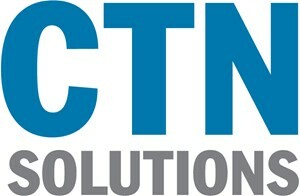Every business is looking for an advantage. With the big push to institute technology to save time and make operations more efficient, many business have begun to try to find the best solution that will allow them to do more with less. One way that many organizations have begun to meet these goals is by getting out from under the operational cost of hosting their own computing infrastructure on premise. There are several ways that businesses can accomplish this. Two of them are to move your computing infrastructure to a colocation center and another is to move it to the cloud. Both will help you cut capital costs, but which will works best for your business?
Colocation
Colocation provides an option for companies to operate their IT infrastructure more efficiently and reliably. A colocation center provides space, power, cooling, physical security, and networking capabilities for a monthly fee. This monthly fee is typically smaller than the operational cost of hosting your equipment on premise, because you’re sharing it with multiple organizations. While operational expenses are significantly reduced by using a colocation, you still have to purchase your own servers, storage, switches, and software, while maintaining and monitoring them yourself.
Many colocation facilities attempt to offer more value to the user by offering their own monitoring and support services, but in all likelihood, if you are using a collocation method, you’ve weighed colocation against more prevalent options and want to manage the IT yourself. Colocation can present some value for organizations that are searching for a way to move their IT out of their office to lower operational expense, but still maintain full control of all of their equipment.
Cloud
Cloud computing is all the rage right now. The difference between cloud computing and colocation is that the organization is not on the hook for the hardware bills. Companies purchase the computing power and environment their organization needs for a monthly rate, and can increase or decrease this as needed. This provides substantial value as it eliminates hardware and maintenance costs from the equation. Since the hardware is managed by the cloud provider, cloud computing is an advantageous option for companies looking to cut their IT costs, while maintaining the applications and computing that their organization depends on.
Cloud computing also opens up the doorway to mobility options, or being able to access your software and data from remote locations. In fact, your organization can get anything from productivity suites to graphics software, customer relationship management platforms or network security software, deployed securely from the cloud to you anywhere there is a broadband Internet connection.
Which is right for you?
Choosing which solution would work best for you is dependant on how hands on you want to be with your IT infrastructure. Both reduce operational expenses and free up office space, but using a colocation will require you to purchase and maintain your own equipment, giving you full control over your IT, making it more suitable for organizations with a full IT staff. Cloud is completely hands off with everything rolled into a single fee, making it more suitable for organizations wanting to offload their entire IT infrastructure. What you choose is up to you, but it seems that cloud is becoming more of the prevailing option for most businesses due to it’s simplicity in budgeting expenses.
